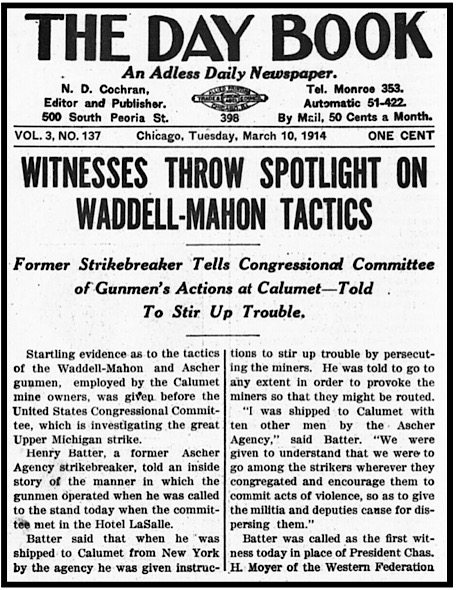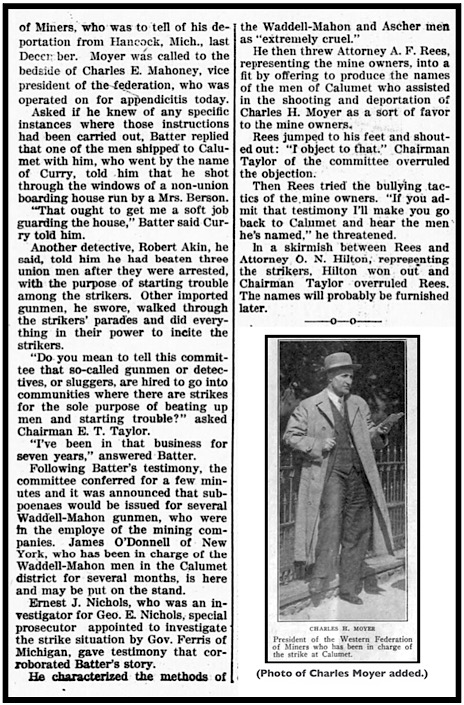The Federal Government and the Chicago Strike
Eugene V. Debs’ Reply to Grover Cleveland’s Magazine Article.
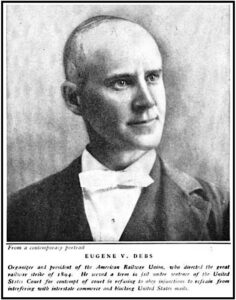
This article was written for McClure’s Magazine in reply to Cleveland, but the editor of that publication refused to publish it, although permitting Cleveland’s calumny of the railway employes of this country to appear in its columns. McClure boasts of circulating a half million copies of Cleveland’s article. This first edition of the Appeal already reaches the half-million mark-ten days before going to press. It will exceed one million before the first of September. The Socialists of America propose to give plutocracy an example of what can be accomplished in the way of circulating the defense of the working class in spite of the wealth of plutocracy. Every true Socialist will take a hand in this distribution.
IN THE July issue of McClure’s Magazine, ex-President Grover Cleveland has an article on “The Government in the Chicago Strike of 1894.” That there may be no mistake about the meaning of “government” in this connection, it should be understood that Mr. Cleveland has reference to the federal government, of which he was the executive head at the time of the strike in question, and not to the state government of Illinois, or the municipal government of Chicago, both of which were overridden and set at defiance of the executive authority, enforced by the military power of the federal government, under the administration of Mr. Cleveland.
CLEVELAND VINDICATES HIMSELF.
THE ex-president’s article not only triumphantly vindicates his administration, but congratulates its author upon the eminent service he rendered the republic in a critical hour when a labor strike jarred its foundations and threatened its overthrow.
It may be sheer coincidence that Mr. Cleveland’s eulogy upon his patriotic administration, and upon himself as its central and commanding figure, appeared on the eve of a national convention composed largely of his disciples who were urging his fourth nomination for the presidency for the very reasons set forth in the article on the Chicago strike.
HIS KNOWLEDGE SECOND-HAND.
HOWEVER this may be, it is certain that of his own knowledge ex-President Cleveland knows nothing of the strike he discusses; that the evidence upon which he acted officially and upon which he now bases his conclusions was ex parte, obtained wholly from the railroad interests and those who represented or were controlled by these interests, and it is not strange, therefore, that he falls into a series of errors beginning with the cause of the disturbance and running all through his account of it, as may be proved beyond doubt by reference to the “Report on the Chicago Strike” by the “United States Strike Commission,” of his own appointment.
WHAT WAS THE CHICAGO STRIKE?
SIMPLY one of the many battles that have been fought and are yet to be fought in the economic war between capital and labor. Pittsburg, Homestead, Buffalo, Latimer, Pana, Coeur d’Alene, Cripple Creek and Telluride recall a few of the battles fought in this country in the world-wide struggle for industrial emancipation.
When the strike at Chicago occurred, did President Cleveland make a personal investigation? No.
Did he grant both sides a hearing? He did not.
In his fourteen-page magazine article what workingman, or what representative of labor, does he cite in support of his statements or his official acts? Not one.
I aver that he received every particle of his information from the capitalist side, that he was prompted to act by the capitalist side, that his official course was determined wholly, absolutely by and in the interest of the capitalist side, and that no more thought or consideration was given to the other side, the hundreds of thousands of workingmen, whose lives and whose wives and babes were at stake, than if they had been so many swine or sheep that had balked on their way to the shambles.
* * *
THE GREATEST INDUSTRIAL BATTLE IN HISTORY.
The Chicago strike was in many respects the grandest industrial battle in history, and I am prouder of my small share in it than of any other act of my life.
Men, women and children were on the verge of starvation at the “model city” of Pullman. They had produced the fabulous wealth of the Pullman corporation, but they, poor souls, were compelled to suffer the torment of hunger pangs in the very midst of the abundance their labor had created.
A hundred and fifty thousand railroad employes, their fellow members in the American Railway Union, sympathized with them, shared their earnings with them, and after vainly trying in every peaceable way they could conceived to touch the flint heart of the Pullman Company, every overture being resented, every suggestion denied, every proposition spurned with contempt, they determined not to pollute their hands and dishonor their manhood by handling Pullman cars and contributing to the suffering and sorrow of their brethren and their wives and babes. And rather than do this they laid down their tools in a body, sacrificed their situations and submitted to persecution, exile and the blacklist; to idleness and poverty, crusts and rags, and I shall love and honor these moral heroes to my latest breath.
Continue reading “Hellraisers Journal: Eugene Victor Debs on the Chicago Pullman/ARU Strike of 1894: “The Grandest Industrial Battle in History.”” →
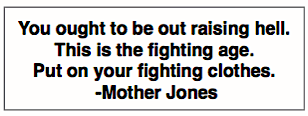 —————
—————
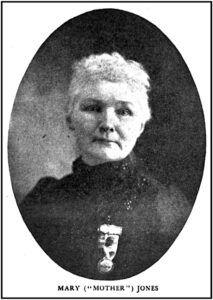
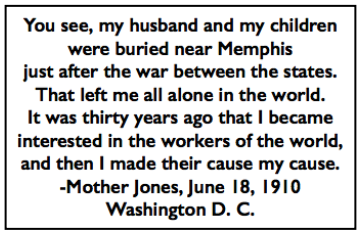 —————
—————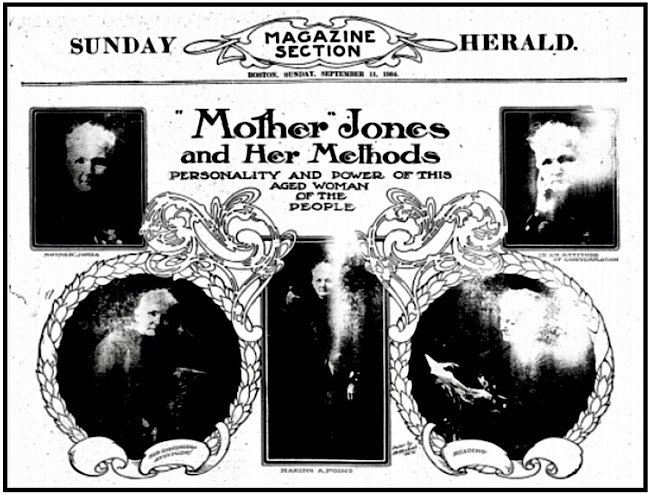
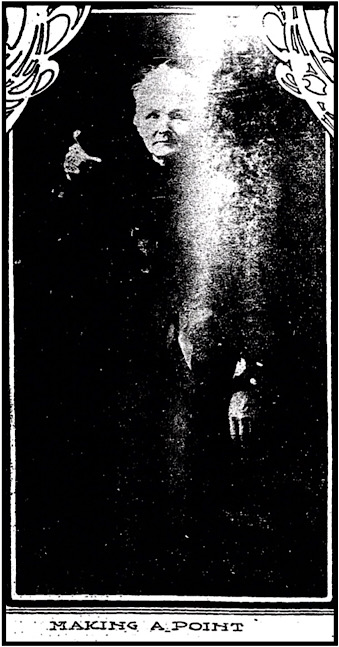 “Mother” Jones is an old woman, perhaps about 62 years of age. Her hair is white as snow, her eyes bright blue. She has a sweet, womanly mouth, and a pink flush in her cheeks. She is robust and healthy in appearance, with a good matronly figure. In dress she is quite plain, often almost shabby; though there is a neatness, almost a daintiness, about her which always gives her an agreeable appearance.
“Mother” Jones is an old woman, perhaps about 62 years of age. Her hair is white as snow, her eyes bright blue. She has a sweet, womanly mouth, and a pink flush in her cheeks. She is robust and healthy in appearance, with a good matronly figure. In dress she is quite plain, often almost shabby; though there is a neatness, almost a daintiness, about her which always gives her an agreeable appearance. —————
—————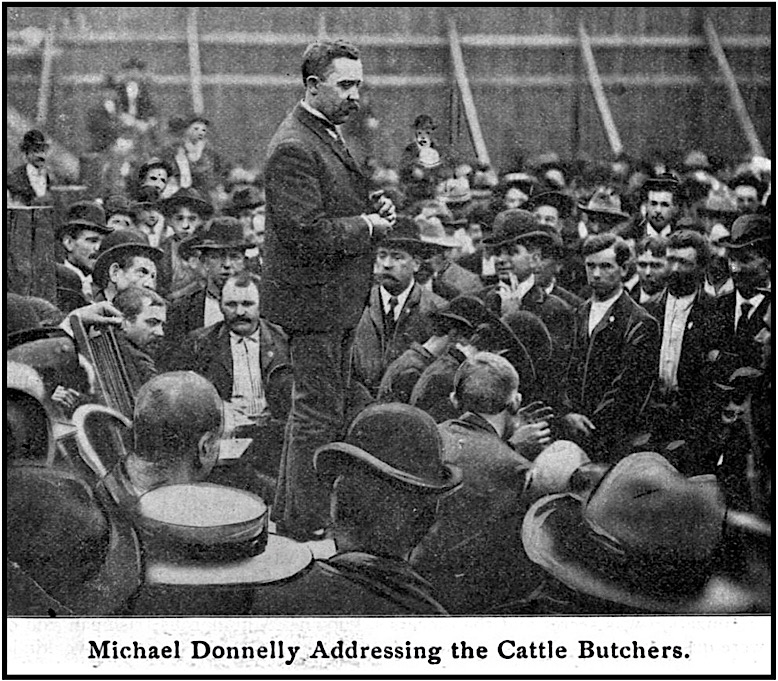
 —————
—————
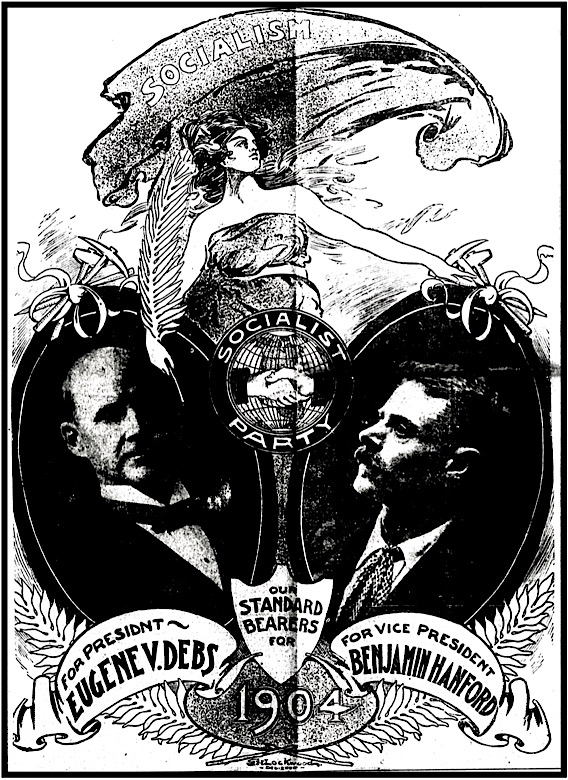
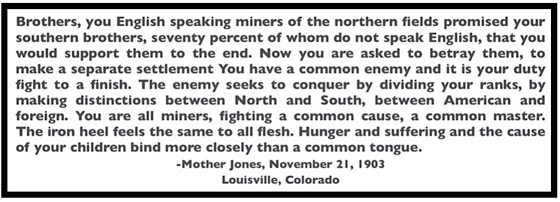 —————
—————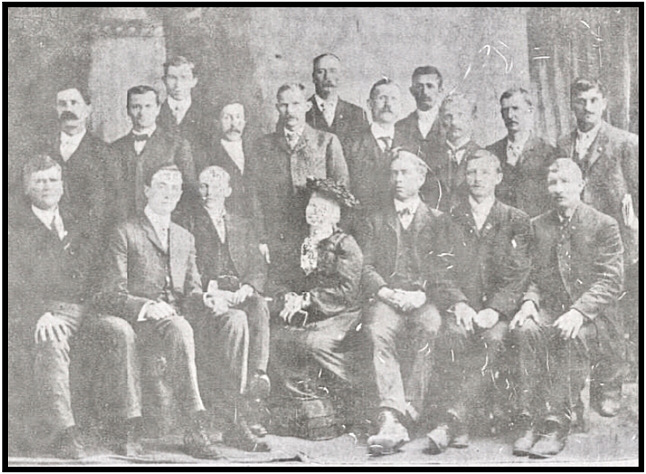
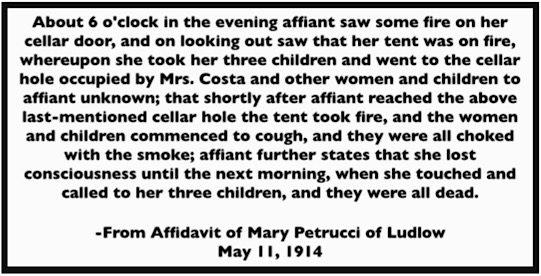 —————
—————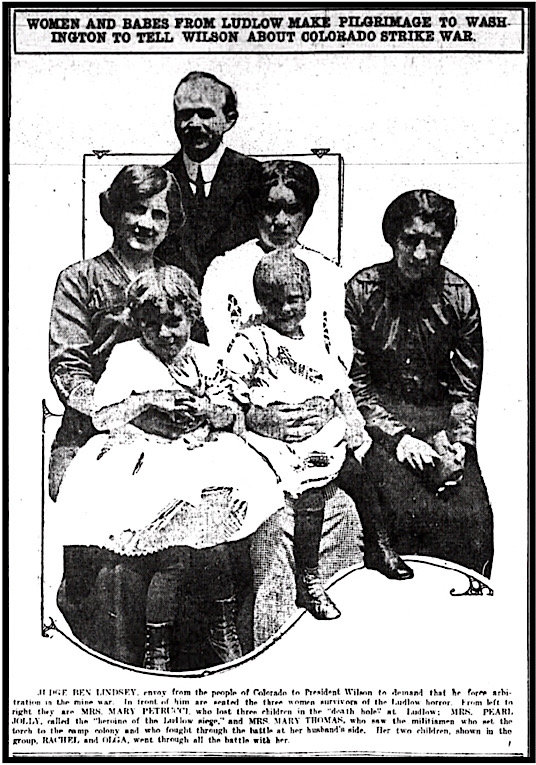
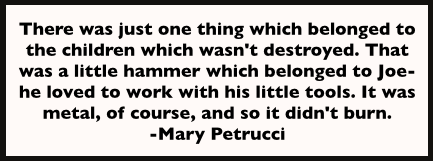 —————
—————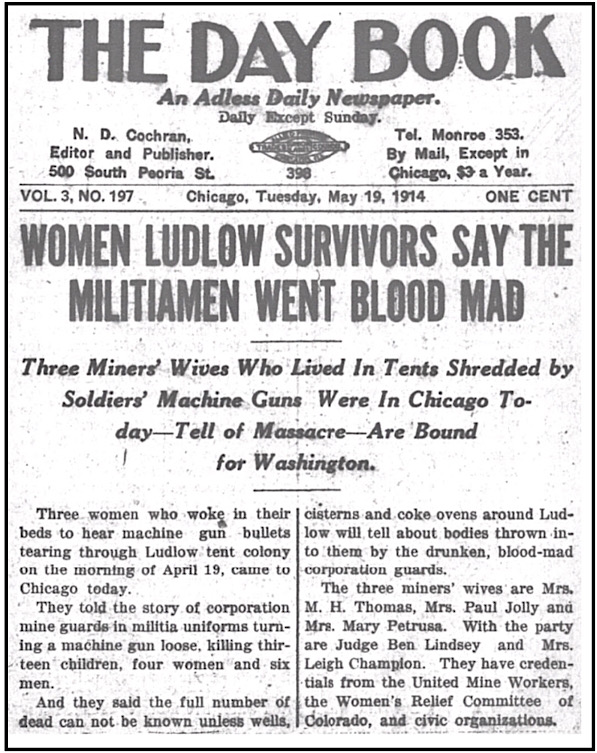
 —————
—————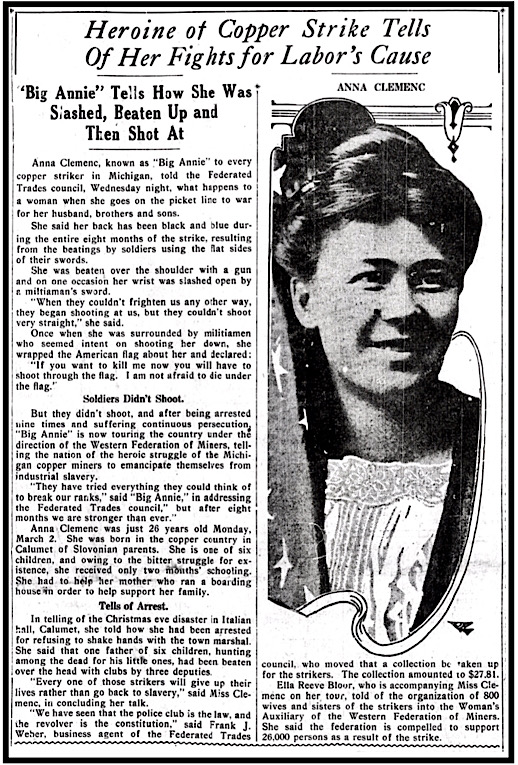
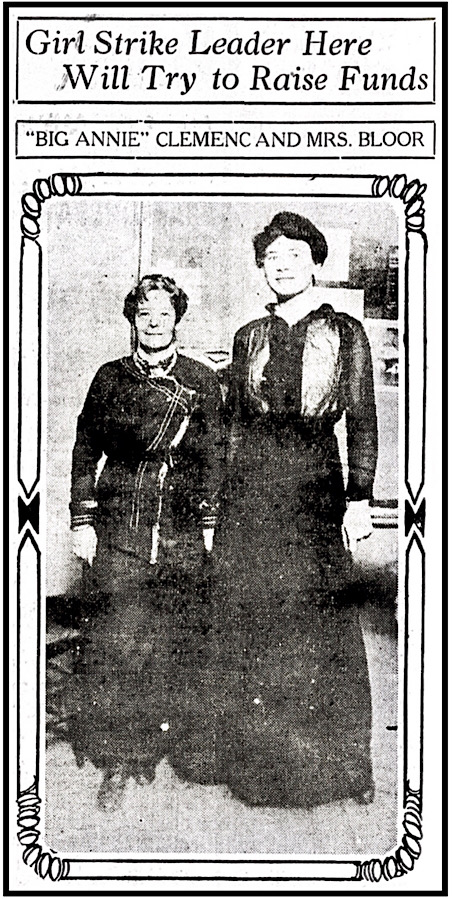
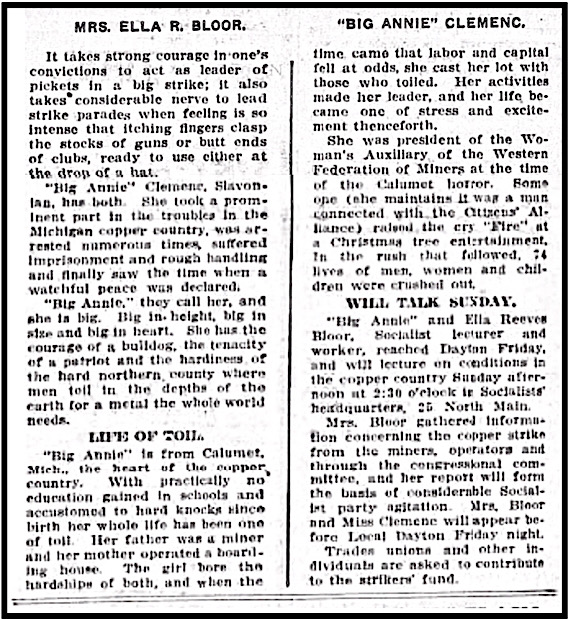
 —————
—————